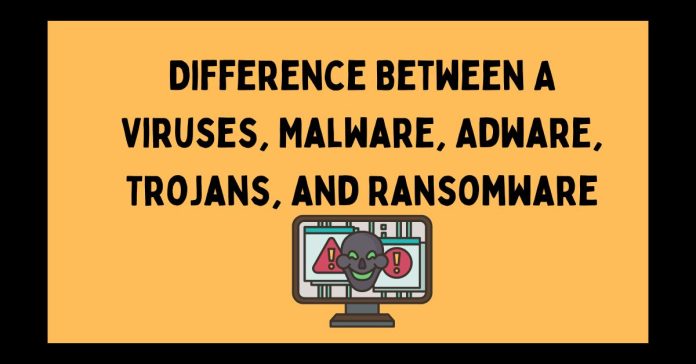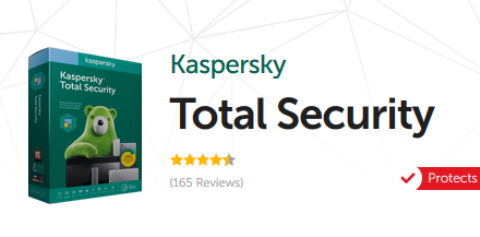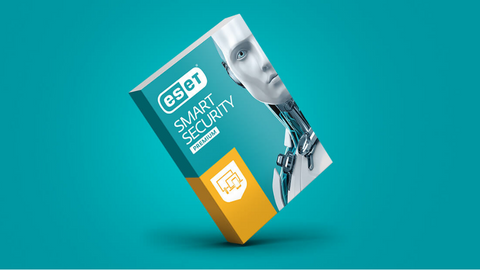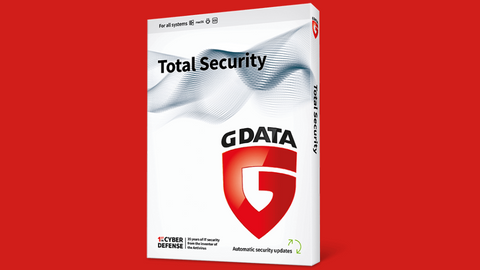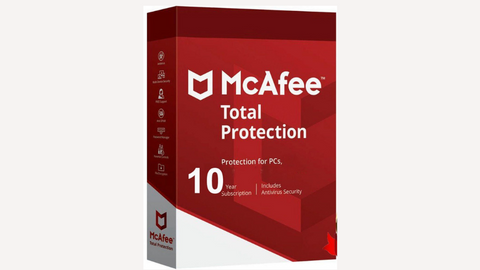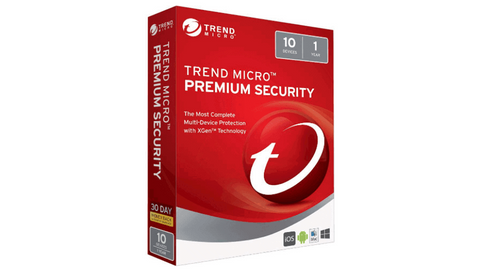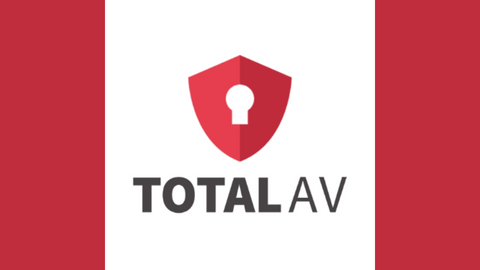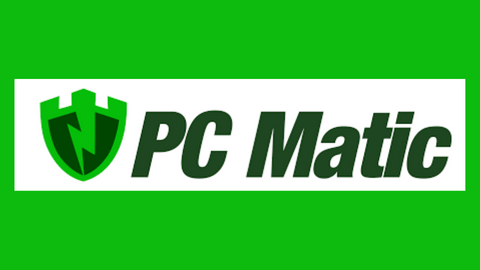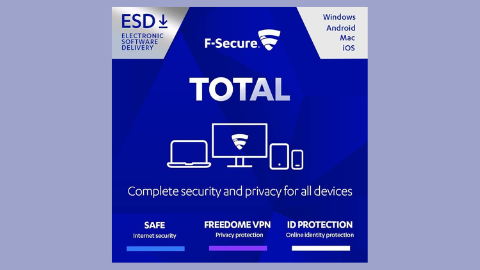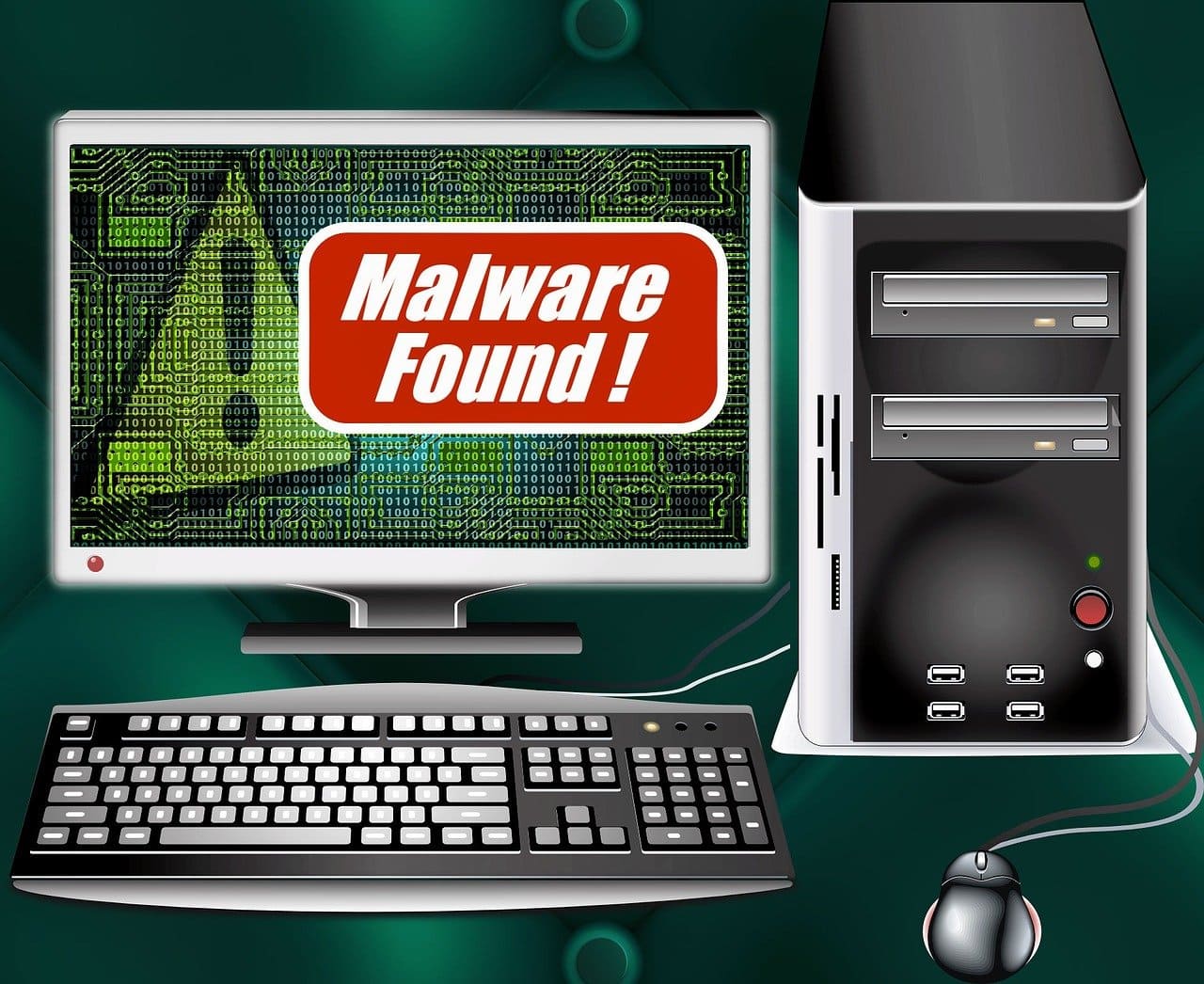Want to know the difference between Viruses, Malware, Adware, Trojans, and Ransomware? This post will show you the differences between these cyber threats. Read on.
Ever feel overwhelmed by all the scary terms like viruses, malware, and ransomware? You're not alone! This post will be your decoder ring, breaking down the key differences between these common digital threats.
We'll explain what each one does, how they can harm your computer, and how to stay safe from them. So, buckle up and get ready to banish the confusion from your digital world!
Top Internet Security Deals
Before I show you the similarities and differences between viruses, malware, adware, trojans, and ransomware, let me show you what they are and their infection signs.
Table of Contents
What Is A Computer Virus?
A computer virus is a malicious software program designed to spread from one device to another and replicate itself.
Imagine a cold virus but for computers! Viruses typically attach themselves to legitimate programs or files, and when you run the infected program, the virus code also executes. This execution allows the virus to:
- Replicate: The virus code inserts copies of itself into other programs on your computer, causing it to become infected as well.
- Spread: Viruses can spread in various ways, such as through email attachments, infected websites, removable drives (like USB sticks), or even P2P file-sharing networks.
READ ALSO: Computer Viruses Guide
What Are The Signs Of Computer Virus Infection?
While the specific symptoms can vary, here are some common signs that your computer might be infected with a virus:
- Slow Performance: Viruses can consume system resources, leading to a noticeable slowdown in your computer's performance. This can manifest as slower boot times, sluggish program execution, and general lag.
- Unusual System Behavior: Unexpected crashes, freezes, or error messages can indicate a virus interfering with your computer's regular operation.
- Unknown Processes: The presence of unfamiliar programs running in the background, especially with cryptic names, could be a sign of a virus activity.
- Pop-Ups and Ads: A sudden increase in unwanted pop-ups or intrusive advertisements can be caused by certain types of viruses.
- Missing or Corrupted Files: Viruses might delete or corrupt important files on your computer, rendering them inaccessible.
Remember: Early detection and removal of a virus is crucial. If you suspect a virus infection, run a scan with a reputable antivirus program and take steps to remove the virus and protect your system.
READ ALSO: Best Antivirus with VPN
What Is A Trojan Horse?
Unlike viruses that spread by replicating themselves, Trojan horses are malicious programs that masquerade as legitimate software. These tricksters can account for a significant portion of malware infections.
Trojan horses can infiltrate your system through various means, often relying on social engineering tactics.
Here are some standard delivery methods:
- Phishing emails: Deceptive emails disguised as trusted sources (e.g., banks, popular services) might contain attachments or links that, when clicked, install Trojan horses.
- Infected downloads: Free software downloads, especially from untrusted sources, might harbour Trojan horses. Always be cautious about what you download and install.
- Malicious websites: Certain websites might be booby-trapped to deliver Trojan horses through drive-by downloads or exploit vulnerabilities in your web browser.
Once installed, Trojan horses can wreak havoc on your system in several ways:
- Data Theft: Trojan horses can steal sensitive information like login credentials, banking details, or personal data.
- System Takeover: Attackers can gain remote access to your computer, allowing them to install other malware, spy on your activity, or even use your machine for malicious purposes.
- Download Gateway: Trojan horses can be a gateway for downloading additional malware onto your system, further compromising your security.
What are the signs of Trojan Horse Infection?
While Trojan horse infections can be stealthy, here are some red flags to watch out for:
- Unexpected Pop-ups: A sudden surge of pop-up ads or unfamiliar windows on your screen could indicate a Trojan horse infection.
- Unwanted Software: The presence of unknown programs you didn't install might signify a Trojan horse at work.
- Slow System Performance: Trojan horses can consume system resources, leading to sluggish performance, crashes, or freezes.
- Missing Files or Data: If you notice important files or data disappearing mysteriously, it could be due to a Trojan horse.
READ ALSO: What are Cyber Threats? How to Secure Your Computer Against Cyber Threats?
What is Adware?
Adware is a type of software that bombards you with unwanted advertisements. It can infiltrate your computer and display these ads in various intrusive ways, disrupting your browsing experience and potentially compromising your privacy.
It's important to distinguish between adware and legitimate advertising practices. Many reputable websites and software programs display ads as a source of revenue. The critical difference lies in consent and user experience.
Legitimate ads are typically non-intrusive, can be quickly closed, and don't track your browsing habits excessively.
Adware, on the other hand, is often sneaky and disruptive. Here's what sets it apart:
- Unwanted and Intrusive Ads: Adware displays excessive pop-up ads, often unrelated to your viewing content. These ads can be challenging to close and might appear in non-closable windows.
- Privacy Concerns: Some adware can track browsing and target you with personalized ads. This raises privacy concerns as it collects data about your online behaviour without explicit consent.
- Bundled with Free Software: Adware can sometimes be bundled with free software you download online. Be cautious during software installation and opt out of any additional software you don't recognize.
What Are the Signs of Adware Intrusion?
If you're experiencing any of the following, your computer might be infected with adware:
- Excessive Pop-up Ads: Are you bombarded with pop-up ads seemingly out of nowhere, even on websites you trust?
- Obtrusive Ads in Unclosable Windows: Do you encounter ads that can't be quickly closed and seem to take over your screen? This is a classic sign of adware.
- Ads Based on Your Browsing Habits: Are you seeing ads suspiciously related to recently visited websites? This suggests the adware might be tracking your browsing activity.
- Slow Computer Performance: Adware can slow down your computer by consuming system resources to display and manage intrusive ads.
READ ALSO: What Are Network Firewalls?
What Is Ransomware?
Imagine someone holding your essential documents hostage and demanding a ransom to release them. That's essentially what ransomware does in the digital world.
Ransomware attacks use a technique called cryptoviral extortion. Attackers encrypt your files, making them inaccessible, and then demand payment, usually in cryptocurrency like Bitcoin, to decrypt them.
This can be incredibly stressful, as the files you need for work, school, or personal use are suddenly locked away.
Ransomware often spreads through deceptive means, disguised as legitimate software or hiding in email attachments. Here's a common scenario:
- The Bait: You receive an email that appears to be from a trusted source, like a bank or delivery company. It might contain a link or attachment.
- The Trap: Clicking the link or opening the attachment unknowingly downloads ransomware onto your computer.
- The Hold Up: Once installed, the ransomware encrypts your files, leaving you with a message demanding a ransom payment to regain access.
What Are the Signs of Ransomware Infection?
If you suspect your computer might be infected with ransomware, look out for these red flags:
- Ominous Messages: Pop-up windows appear on your screen, demanding payment to unlock your files. These messages often use scare tactics and threats of permanent data loss.
- Inaccessible Files: You can't open essential documents, photos, or other files. They may appear encrypted or corrupted.
- Login Issues: In some cases, ransomware might even prevent you from logging into your computer altogether.
Remember: Paying the ransom doesn't guarantee you'll get your files back. It can encourage attackers to target you again. Having a sound backup system and practising safe browsing habits is crucial to avoiding ransomware attacks.
READ ALSO: Comprehensive Malware Guide: Safeguarding Your Digital World
What Is Malware?
Malware, short for malicious software, is a program intentionally designed to harm a computer system or network.
It can be disguised as legitimate software, tricking users into downloading and installing it. Once installed, malware can perform a variety of malicious activities, such as:
- Stealing personal information (passwords, credit card details)
- Damaging or deleting files
- Disrupting computer operations
- Downloading and installing additional malware
- Spying on your activity
While often used interchangeably, “malware” is an umbrella term encompassing various threats. Here's a breakdown of some common types of malware:
- Viruses: These self-replicating programs attach themselves to legitimate files and spread from computer to computer.
- Trojan horses: These programs disguise themselves as beneficial or harmless but unleash their malicious payload once downloaded.
- Ransomware: This type of malware encrypts your files, holding them hostage until you pay a ransom to regain access.
- Adware: This unwanted software bombards you with excessive and intrusive advertisements.
- Spyware: This software secretly monitors your online activity and gathers personal information.
READ ALSO: Best Free Antivirus for Windows PC (Not Free Trial)
What Are the Signs of Malware Infection?
A malware infection can manifest in various ways, so vigilance is essential.
Here are some red flags to watch out for:
- Slow computer performance: Malware can bog down your system by consuming resources.
- Frequent crashes or freezes: Unexpected system instability can indicate malware activity.
- Suspicious pop-ups or advertisements: A sudden influx of unwanted ads might indicate adware infection.
- Missing or corrupted files: Malware can damage or delete essential files.
- Unknown programs running in the background: Unfamiliar programs consuming system resources could be malware.
Remember: If you suspect a malware infection, don't hesitate to take action. Run a reputable antivirus scan and consider seeking professional help if necessary.
Now, I will reveal the major similarities between viruses, malware, adware, trojans, and ransomware.
Similarities Between Computer Virus, Malware, Adware, Trojan Horse, And Ransomware
Here are their similarities:
- Malicious Intent: All these threats belong to the malware family, aiming to harm your computer system or network in some way (data theft, system disruption, etc.).
- Deceptive Tactics: They often use deception to gain access to your system. This can involve social engineering, disguising themselves as legitimate software, or exploiting vulnerabilities.
Now, I will show you the differences between differences between viruses, malware, adware, trojans, and ransomware.
READ ALSO: Adware Signs, Effects, And How To Remove It
Differences Between Computer Virus, Malware, Adware, Trojan Horse, And Ransomware
| Malware Type | Mode of Operation | Severity of Impact |
|---|---|---|
| Virus | Self-replicates and spreads actively upon user interaction (downloading infected files). | It spreads quickly and can be highly disruptive. |
| Trojan Horse | Disguised as harmless software, it unleashes malicious actions upon installation. | Varies depending on the Trojan's purpose (data theft, installing additional malware). |
| Ransomware | Encrypts your files, holding them hostage until a ransom is paid. | It is highly disruptive and can cause significant data loss if not addressed. |
| Adware | Bombards you with excessive and intrusive advertisements. | It is less severe than other malware but can be annoying and potentially lead to further threats. |
| Spyware | Operates in the background, secretly monitors online activity and gathers personal information. | It varies depending on the information collected and can be a significant privacy concern. |
Building a Digital Fortress: How to Prevent Viruses, Malware, Adware, Trojans, and Ransomware
The digital world thrives on information, but it also harbours threats. Viruses, malware, adware, Trojans, and ransomware can wreak havoc on your computer.
Here are tips to prevent these digital nasties from infiltrating your system:
Software Shields: Building the First Line of Defense
Antivirus All-Star: Having a reputable antivirus program is essential. It acts as a shield, constantly scanning your system for malicious threats and removing them before they can cause damage. Choose a program with features like real-time scanning, automatic updates, and malware detection capabilities. Keep your antivirus software updated with the latest definitions to ensure it can identify the newest threats.
Firewall Fortification: A firewall acts as a gatekeeper, monitoring incoming and outgoing traffic on your computer. It can help block suspicious connections that might attempt to download malware or steal your data. Ensure your firewall is enabled and configured appropriately.
Software Update Savvy: Outdated software can have security vulnerabilities that malware can exploit. Make it a habit to regularly update your operating system (Windows, Mac, etc.), web browser, and other applications. Most software offers automatic update options – enabling them to stay patched and protected.
Web Browsing Bravado: Navigating the Digital Wild West
Link Literacy: Be cautious when clicking links, especially in emails or websites you don't recognize. Phishing emails often contain malicious links that can download malware if clicked. Hover over links to see the actual destination URL before clicking.
Download Discernment: Only download software from trusted sources. Avoid downloading files from unknown websites or clicking on suspicious pop-up ads that offer free software downloads. These can be malware traps.
Attachment Awareness: Exercise caution with email attachments, especially from unknown senders. Don't open attachments you weren't expecting, even if they appear from someone you know. Always scan attachments with your antivirus software before opening them.
Script Stopper (Optional): Consider using a script blocker extension for your web browser. This can help prevent malicious scripts from running on websites you visit, potentially preventing drive-by downloads of malware.
Social Engineering Savvy: Outsmarting Deception
Gift Horse Scrutiny: Be wary of unsolicited offers or “too good to be true” deals online. These could be scams designed to trick you into downloading malware or revealing personal information.
Software Suitability: If you're unsure about the legitimacy of software, research it online before downloading. Read reviews and check the developer's website to verify its authenticity.
Password Power: Use strong and unique passwords for all your online accounts. Don't reuse the same password across different platforms. Consider using a password manager to generate and store strong passwords securely.
Being Backup Buddies: Preparing for the Worst
Data Backup Champion: Regularly back up your important data to an external hard drive or cloud storage service. In the unfortunate event of a ransomware attack, having backups ensures you don't lose your precious files.
Disaster Recovery Plan: A disaster recovery plan can be invaluable if your computer gets infected. This might involve knowing how to restore your system from a backup or having a recovery tool readily available.
Wrapping Up
Lastly, you can identify the differences between cyber threats, i.e., viruses, adware, trojan horses, ransomware, and malware. Protecting your computer and ensuring it never falls sick is a great idea.
While all are considered malicious software (malware), these threats have vital differences:
- Viruses spread actively, while Trojans deceive you into installing them.
- Ransomware encrypts your data, while adware bombards you with ads.
- Spyware works silently in the background, stealing your information.
Understanding these distinctions helps you identify and prevent these threats from harming your computer.
What do you think about Computer Virus, Malware, Adware, Trojan Horse, And Ransomware? Drop a comment below.
CHECK OUT: Top Antivirus Deals & Special Offers
Note: This was initially published in October 2019 but has been updated for freshness and accuracy.
RELATED POSTS
- Most Effective Cybersecurity Strategy For A Small Business [We Asked 45+ Experts]
- Full Review of GlassWire Firewall Software – Extreme Network Monitoring
- Full Reimage Plus Review
- Full Review of Airo Antivirus software for Mac – Powerful & Intelligent Antivirus
- How To Get A Cybersecurity Job With No Experience
- Adware Guide for Beginners: Stay Safe Online
- How To Recognize And Avoid A Fake Virus And Malware Warning
- Types Of Trojan Horses And How To Remove Them
- Adware Vs Ransomware Showdown: Decoding the Threat
About the Author:
Daniel Segun is the Founder and CEO of SecureBlitz Cybersecurity Media, with a background in Computer Science and Digital Marketing. When not writing, he's probably busy designing graphics or developing websites.
Christian Schmitz is a professional journalist and editor at SecureBlitz.com. He has a keen eye for the ever-changing cybersecurity industry and is passionate about spreading awareness of the industry's latest trends. Before joining SecureBlitz, Christian worked as a journalist for a local community newspaper in Nuremberg. Through his years of experience, Christian has developed a sharp eye for detail, an acute understanding of the cybersecurity industry, and an unwavering commitment to delivering accurate and up-to-date information.


